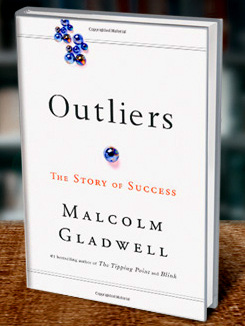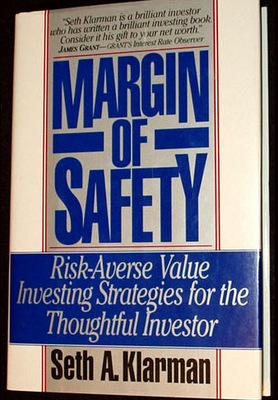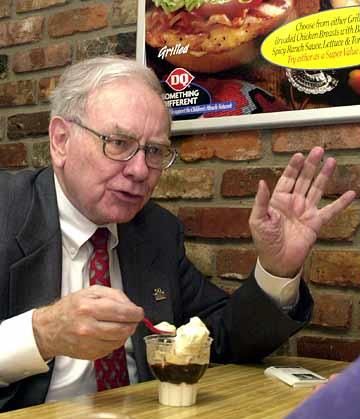
Tay Jun Hao (left) co-founded a private investment partnership. Tay Associates Partnership, in Singapore with S$2.5 million under management, and is its managing partner. Annualized returns since inception is 25.03%. He also blogs at QuantitativeValue.org, in which the following article was recently published and is reproduced here with permission. He discovered investing as his passion after some detours: "I read Medicine at Imperial College London for a year before deciding that my true passion lay elsewhere. With that, I switched courses, eventually deciding on law at the University College of London, with the belief that it would help me develop an inquisitive mind based on logic and reason."
Lesson #1: Focus and Grind
One of the main reasons why I became competent in investing was my focus.
Finance is exciting; there is nothing quite like it in the world. There is always something new happening, and if investing is done right, it can be immensely profitable.
Nothing gets people more excited than the idea of getting rich, and there is an abundance of people willing to sell you the latest system to help get you there.
When I started out, I was extremely suspicious of all trading strategies. But with time, I have come to change my stance on it.
Finance is exciting; there is nothing quite like it in the world. There is always something new happening, and if investing is done right, it can be immensely profitable.
Nothing gets people more excited than the idea of getting rich, and there is an abundance of people willing to sell you the latest system to help get you there.
When I started out, I was extremely suspicious of all trading strategies. But with time, I have come to change my stance on it.
You can make money investing in almost ANYTHING.
There are people who make plenty of money trading commodities (Jim Rogers), using a global macro strategy (George Soros), or investing in real estate (Donald Trump).
The point is whether YOU can do it. The 80-20 principle holds true in any field of investment that I can think of. If there is a market, someone is making money.
Everyone I know who has made significant sums of money investing in shares is extremely FOCUSED on one field of investment.
There are people who make plenty of money trading commodities (Jim Rogers), using a global macro strategy (George Soros), or investing in real estate (Donald Trump).
The point is whether YOU can do it. The 80-20 principle holds true in any field of investment that I can think of. If there is a market, someone is making money.
Everyone I know who has made significant sums of money investing in shares is extremely FOCUSED on one field of investment.
People who are great in forex stay within forex, people who are great in real estate stay within real estate, and people who are great in investing in businesses stay within that area.
It’s only when they venture out of their circle of competence that they get burnt.
 Malcolm Gladwell: "What’s ten years? Well, it’s roughly how long it takes to put in ten thousand hours of hard practice. Ten thousand hours is the magic number of greatness."Malcom Gladwell talks about the “10,000 Hour Rule” necessary to become the top in one’s field. Think about it for a moment: if you tried 10 different investing strategies over the course of 5 years, how good would you be compared to the guy who honed his skills investing in businesses by reading a thousand annual reports?
Malcolm Gladwell: "What’s ten years? Well, it’s roughly how long it takes to put in ten thousand hours of hard practice. Ten thousand hours is the magic number of greatness."Malcom Gladwell talks about the “10,000 Hour Rule” necessary to become the top in one’s field. Think about it for a moment: if you tried 10 different investing strategies over the course of 5 years, how good would you be compared to the guy who honed his skills investing in businesses by reading a thousand annual reports?Admittedly, it’s much easier to talk about starting a bunch of different new things compared to actually honing our skills day in, day out. It’s exciting to talk about the potential rewards, to get hyped up about the changes and impact that it’s going to have on our life… but slowly we realize it’s much harder than we thought, and we soon move on to the next project.
This cycle repeats itself, and soon we find ourselves becoming a jack of all trades and the master of none.
Every leader in his field is famous for one thing to which he dedicates his life and passion to – Steve Jobs, Michael Jordan, Bill Gates, Henry Ford, and Rockefeller. The only way to become great in investing is to focus and grind relentlessly in that field.
Lesson #2: Nothing Worth Having is Free…
…and this is especially true for anyone who is trying to dominate his field.
There isn’t a shortage of free information – it’s available everywhere. Like your average Asian, I’m out for a good deal. But I can say with conviction that the last place you will want to save costs on is your education to become a competent investor.
The average person will spend tens of thousands of dollars on a college degree, spend endless hours studying and building up a spotless CV to get a great job, yet when it’s time to spend a couple of dollars on books, or go to meaningful conferences (not seminars that are out to grab as much money from you as possible), they suddenly extol the virtues of saving money and their lack of time.
If you treat investing like a hobby, you are going to get the same results. The people you are up against include:
1) Professional fund managers -- they are some of the best paid individuals in the world who do this FULL-TIME, and they still have a notoriously hard time beating the market.
 Seth Klarman's very expensive book, Margin of Safety.2) Investors like Warren Buffett, David Einhorn or Seth Klarman have spent decades perfecting their art.
Seth Klarman's very expensive book, Margin of Safety.2) Investors like Warren Buffett, David Einhorn or Seth Klarman have spent decades perfecting their art.3) Other investors who live and breathe the market, and love to do this day in, day out.
The odds are stacked astronomically against you.
In order to become great at anything, we have to pay our tuition fees one way or the other – be it in time or money. While it is possible to learn from our mistakes, why not learn from the mistakes of other people? There is a treasure trove of information for value investors out there.
If you decide that this is not for you, buy a market index fund and rest easy at night.
Lesson #3: Build a Great Supportive Network
This is my favorite way of short-circuiting my learning process in any field.
A great network is primarily divided into three groups of people:
>> Mentors: While theory and personal experience are essential, I learnt the most by sharing my own mistakes and successes with my mentors to see what can be tweaked. There is always room for improvement.
I have had the privilege of meeting an incredible group of people willing to share their own experiences with me.
I truly believe that most people want to help others succeed. They might not always have the time, or be in the right place to help you, but you have to be persistent, and you have to keep looking. You will find people who will take your game to the next level.
>> Peers: People who are on the same journey can be a great sounding board for ideas and informal sharing. I was very lucky to meet an incredible group of people heading in the same direction that I was, and I have learned a great deal from every one of them.
People talk to me all the time about different companies, and I have learnt about industries or businesses that I wouldn’t have considered previously, or viewpoints that I would never have considered.
As Steve Jobs said, the dots only connect when we look backwards. Some of my best investment ideas have been the result of a dozen different experiences and interactions combined, and it’s quite amazing to see how it all comes together at the end.
>> Friends and Family who Believe in You:
This is the most important group. Getting great in any field requires a lot of dedication and persistence, and you are going to fail a lot to get there.
Have a great group of people around you who believe in you when you struggle and who can help you recover from any setbacks.
You can’t get to the finishing point on your own, and the people you hang around with the most – your close friends and family – are, I feel, so important in helping you stay on track.
 Warren Buffett, arguably the greatest investor in history. Photo: InternetMy thoughts on building relationships:
Warren Buffett, arguably the greatest investor in history. Photo: InternetMy thoughts on building relationships:According to Buffett, Ben Graham said that he wished to do something foolish, something creative, and something generous every day. The last part had a huge impact on Buffett as it did on me.
The fact that a man of Graham’s ability shared his knowledge so freely astounds me to this day.
A mentor I had once taught me, relationships aren’t about taking, taking and taking. It’s about giving without the need for getting anything back. People are naturally helpful and want to help you if they can.
So every day, I try my best to be helpful to someone, even if it’s in a small way. People appreciate the small things. This, I believe, is the key to great relationships and it ensures that both parties grow as individuals.
Each of us has our own talents and strengths, and thus something of value to offer to everyone. So if you want to build up a great network of people, always remember to give before asking.
Final Thoughts:
This has been an especially long post, and I have tried to keep it as relevant to someone starting out as possible. There are a few great resources that I recommend as I feel that they will help anyone build a solid foundation in fundamental analysis and value investing:
These are The Intelligent Investor (Benjamin Graham), Warren Buffett's biographies, and Berkshire Hathaway annual shareholder letters.
So every day, I try my best to be helpful to someone, even if it’s in a small way. People appreciate the small things. This, I believe, is the key to great relationships and it ensures that both parties grow as individuals.
Each of us has our own talents and strengths, and thus something of value to offer to everyone. So if you want to build up a great network of people, always remember to give before asking.
Final Thoughts:
This has been an especially long post, and I have tried to keep it as relevant to someone starting out as possible. There are a few great resources that I recommend as I feel that they will help anyone build a solid foundation in fundamental analysis and value investing:
These are The Intelligent Investor (Benjamin Graham), Warren Buffett's biographies, and Berkshire Hathaway annual shareholder letters.



We do, but as we deal with small capitalization companies, I don't disclose my positions due to liquidity problems.
Greenrookie:
Thanks a lot. I agree with you. Becoming great in any field requires us to keep reading, to keep learning and keep improving.
Paul:
I definitely agree financial literacy is something that's lacking, and not something everyone thinks about.
A dollar spent today is a few dollars sacrificed in the future, so the earlier we all learn it, the better.
U have been to medical school n law school. The school produces doctors n lawyers and teaches them how to exchange their precious time for their livelihood n most become too engrossed in their careers to think of any othrr things. In the end most work till they drop.
Financial literacy shd be especially taught to high achievers n not wait till they learn through the "school of hard knocks"
In today's sky high ppty prices n coe prices, this is all the more impt.
Sadly, i don't see any.financial module in the medicine or law undergrad course.
Some of the recommended books, I will pick them up soon. We can never claim we learned the art of investing... We keep learning, so being focus and be on it is definitely important.
When we look at a company, we use as long as a historical data as possible or as available, the same should be applied when assessing our own performance in investing.
Nice article, congrats in your performance thus far, u beats many fund managers hands down.